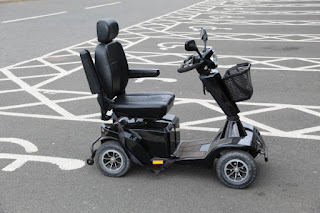Role of Motorized Wheelchairs in Promoting Inclusion and Accessibility
Introduction
In the pursuit of creating an inclusive society, ensuring accessibility for individuals with mobility challenges becomes a paramount goal. Motorized wheelchair models have emerged as a transformative solution, enabling those with limited mobility to participate actively in their communities, workplaces, and social environments. These advanced mobility aids not only provide freedom of movement but also foster a sense of independence, empowerment, and belonging. In this blog, we will explore the significant role of motorized wheelchairs in promoting inclusion and accessibility, touching upon their benefits, advancements, and the broader impact they have on society.
Enhancing Mobility and Independence
An electric wheelchair can empower individuals to move freely, both indoors and outdoors. With the ability to navigate various terrains, including rough surfaces and inclines, users can explore their surroundings with confidence and independence.
An electric wheelchair can empower individuals to move freely, both indoors and outdoors. With the ability to navigate various terrains, including rough surfaces and inclines, users can explore their surroundings with confidence and independence.
- Increased Social Engagement
- Accessibility to Public Spaces
- Workplace Accommodations
- Boosting Productivity and Innovation
- Enhanced Maneuverability
- Smart Technology Integration
- Pushing for Accessibility Standards
- Advocacy for Policy Changes
- Emphasizing Abilities Over Disabilities
- Empowerment and Confidence
The freedom of movement offered by power wheelchairs plays a crucial role in enhancing social engagement. Individuals can participate in community events, gatherings with friends and family, and various social activities, strengthening their connections and sense of belonging.
A motorized wheelchair breaks down barriers by providing access to public spaces that were previously challenging to navigate for individuals with limited mobility. This increased accessibility fosters a more inclusive environment, enabling all members of society to participate in public life.
Promoting Inclusion in the Workplace
Motorized wheelchairs enable individuals with mobility challenges to access the workplace and perform their job duties effectively. By providing equal employment opportunities, businesses and organizations contribute to a more inclusive and diverse workforce.
Employers recognizing the importance of diversity and inclusion often make necessary accommodations to support employees who use motorized wheelchairs. These accommodations may include accessible workspaces, modified equipment, and flexible work arrangements.
Inclusive workplaces that value the contributions of individuals with diverse abilities often experience increased productivity and innovation. By embracing different perspectives and talents, businesses can tap into a wider range of skills and ideas.
Technological Advancements
Motorized wheelchairs have evolved to include various mobility features, such as power tilt and recline functions, adjustable seating, and advanced suspension systems. These enhancements ensure optimal comfort and reduce the risk of pressure sores for users who spend extended periods in their wheelchairs.
Advancements in motorized wheelchair technology have led to increased maneuverability, allowing users to navigate tight spaces and crowded areas more easily. Compact and agile designs ensure seamless movement even in confined environments.
The integration of smart technology in motorized wheelchairs has revolutionized accessibility. With features like Bluetooth connectivity and voice commands, users can control their wheelchairs effortlessly, providing them with more independence and ease of use.
Public Awareness and Advocacy
The increased visibility of motorized wheelchairs and other mobility aids in public spaces raises awareness about disability and accessibility issues. As people become more familiar with these aids, they are more likely to advocate for inclusive policies and environments.
Motorized wheelchairs play a vital role in advocating for the establishment and enforcement of accessibility standards in public spaces. When individuals with limited mobility encounter barriers, it draws attention to the need for inclusive design and accommodations.
The use of motorized wheelchairs often goes hand in hand with advocacy for policy changes that prioritize accessibility and inclusion. Individuals and disability advocacy groups work tirelessly to bring about positive changes in laws and regulations to ensure equal rights for all.
Cultural Shift and Attitude Change
As motorized wheelchairs become more prevalent in society, they help reduce the stigma associated with mobility challenges. By promoting acceptance and understanding, these mobility aids challenge misconceptions about disability and promote empathy.
Motorized wheelchairs shift the focus from individuals' disabilities to their abilities and talents. By providing access to opportunities, they enable individuals with limited mobility to showcase their skills and talents, contributing to a more inclusive and diverse society.
Using a motorized wheelchair can boost individuals' confidence and sense of empowerment. The ability to move independently and engage in various activities without relying on others fosters a positive self-image and a stronger sense of identity.
Conclusion
A motorized wheelchair plays a pivotal role in promoting inclusion and accessibility, breaking down physical and societal barriers that limit individuals with mobility challenges. By enhancing mobility and independence, these advanced mobility aids enable individuals to participate fully in social, professional, and community life. With ongoing technological advancements and increased public awareness, motorized wheelchairs are catalysts for change, pushing society towards a more inclusive future where everyone can participate and contribute without limitations or barriers. As we continue to embrace diversity and strive for inclusivity, motorized wheelchairs remain a driving force in creating a more compassionate and accepting world for all.


.jpg)

Comments
Post a Comment